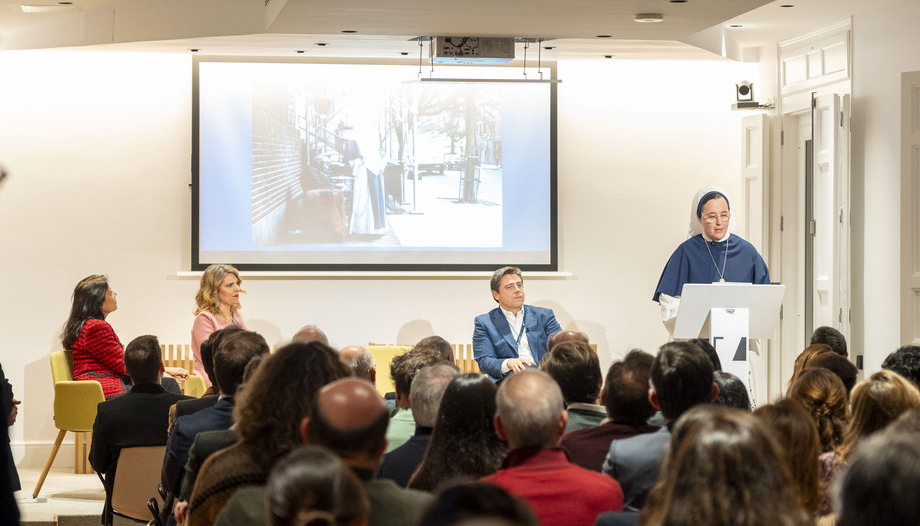The first conference on abortion organized by Altum Faithful Investing announced the good news: There is hope! With three different perspectives, arguments were presented as weapons to fight for life.
Mónica López-Barahona, president of the Jérôme Lejeune Foundation, explained the scientific beginning of life, Leire Navaridas, founder of AMASUVE, spoke about life after abortion, and Sister Cristina, from Sisters of Lifeon the vocation for life.
"It is much easier to demonstrate that life begins at the moment of conception than to prove that two and two are four". With this assurance, Mónica López-Barahona explained how science supports that human life begins at the moment of fertilization. She highlighted the importance of cell biology, genetics and embryology to support this premise.
López-Barahona criticized the term laws on abortion, which lack a scientific basis. "There is no substantial change in embryonic development that justifies an arbitrary cut-off point to determine the beginning of life," he asserted.
For her part, Leire Navaridas' experience illustrates the trauma of abortion. A convinced feminist who considered motherhood as an oppressive yoke, she suffered the violence of the interruption of her pregnancy resulting in deep pain and great wounds: "they make us believe that abortion is a way out, but what we really need is support and real solutions," she said.
Navaridas understood that a pregnant woman is already a mother. Her therapist told her "Leire, stop destroying and start building" and so she did. AMASUVE today supports women and men affected by the wounds caused by abortion, considering it a traumatic event that has very deep consequences on people and their relationships, as well as on society. It thus assures that abortion does not solve any problem, but the unconditional love of a child "can be the engine that sorts out all the disorder in a woman's life".
A life is a gift from God. One cannot give one's life to oneself. As Sister Cristina says: "If I did not remember God this morning, he did not forget me. Because I am still breathing. But we are unaware of our high price and as a consequence society lowers human dignity, before which many times we can only say: "Father, forgive them because they do not know what they are doing".
Human dignity is threatened by the culture of death, of the desire for well-being and the culture of the body, which constitutes a hedonistic, narcissistic and individualizing toxic air. Thus, we make mistakes such as animalizing people and humanizing animals. Reducing people to objects, says Sister Cristina, is worse than hating them.
"The woman's womb is the altar where God enters the world. That is why it is where it is most attacked". This is how Sister Cristina describes the spiritual battle in which we find ourselves. We are called to give hope, to generate a culture of healing and purification of so many wounds that prevent us from seeing the value of human life, thus building a different world: "more human, more Christian, where Jesus Christ in the Eucharist is the first environment and habitat where all that is human can unfold". He thus calls for unity and communion as a wall that protects us from the enemy.
Sister Cristina points out that we must live integrated in these times, where we have a responsibility: God will examine us one day and ask us: 'And you, what were you doing during the anti-personnel revolution?'









